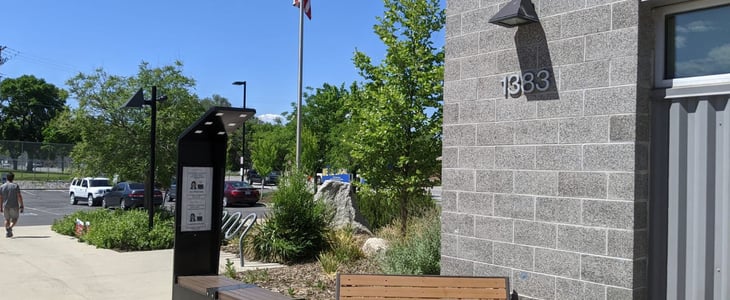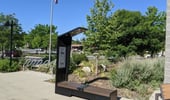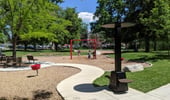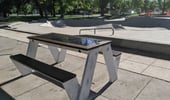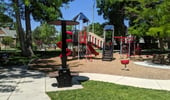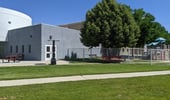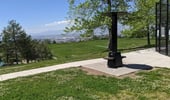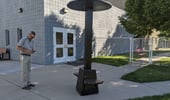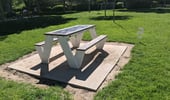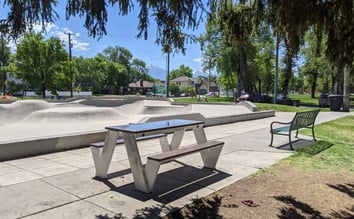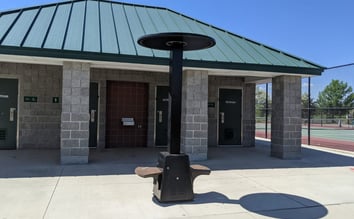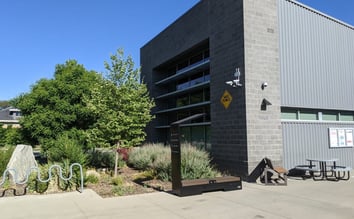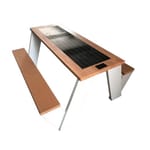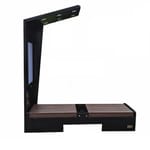Salt Lake City Solar Charging Stations
Salt Lake, Utah
Project Details
- Location
- Salt Lake, Utah
Project Narrative: Solar Charging Stations in Parks and Recreational Areas During the Pandemic
City of Salt Lake, Utah
Project Scope
• Salt Lake City, known for its commitment to sustainability and progressive public space planning, initiated a citywide effort to install solar-powered charging stations in public parks and recreational areas during the COVID-19 pandemic.
• The goal of the project was to help children and families safely enjoy outdoor spaces while maintaining access to essential technology for remote learning, virtual interaction, and device charging.
• SELS was selected to design and deliver fully off-grid charging stations that included wireless connectivity, Bluetooth speakers, and multiple charging ports—creating outdoor tech hubs that merged recreation with functionality during a critical time.
• More than just benches, these stations provided powered seating areas with access to Wi-Fi and device charging in an open-air environment, reducing the digital divide and encouraging socially distanced educational activity.
Project Context and Objectives
• During the COVID-19 pandemic, the City of Salt Lake launched an innovative public infrastructure initiative aimed at supporting students and families by creating safe, accessible, and connected outdoor environments.
• The city deployed solar-powered charging stations in parks and recreational areas to help children enjoy public spaces and continue school-related activities in open-air settings outside of their homes.
• These solar charging stations were designed to provide not only clean energy access, but also Wi-Fi connectivity and Bluetooth audio features to support digital learning, recreation, and social connection in a safe, outdoor environment.
Site-Specific Challenges
• Public Health and Accessibility Needs
o The pandemic heightened the demand for safe, socially distanced alternatives to indoor learning and recreation—especially for children and underserved communities.
• Outdoor Technology Integration
o The stations needed to deliver reliable connectivity and power in outdoor settings without relying on grid infrastructure.
• Weather Resistance and Vandalism Protection
o Each unit required rugged construction to withstand environmental exposure and ensure long-term durability in public parks.
SELS Design and Execution Strategy
• All-in-One Smart Charging Station
o SELS designed and delivered solar-powered stations equipped with high-efficiency solar panels, multiple charging ports (USB-A, USB-C, and 120V 60Hz GFCI outlets), integrated Wi-Fi capability, and Bluetooth speakers for public use.
• Kid-Friendly, Pandemic-Responsive Design
o Stations were placed near shaded seating areas and gathering points in parks to support both learning and leisure, offering a tech-friendly space for schoolwork, relaxation, or music.
• Durable, Low-Maintenance Infrastructure
o SELS constructed each unit using weather-resistant, tamper-proof materials suitable for high-traffic outdoor settings, with minimal maintenance required.
Project Outcomes and Impact
• Support for Remote Learning and Social Engagement
o The charging stations provided essential access to power and internet for children engaged in virtual learning during school closures.
• Enhanced Use of Public Spaces
o Parks became vibrant, multi-use outdoor classrooms and gathering places—improving mental well-being and educational access during a difficult time.
• Sustainable, Long-Term Community Asset
o What began as a pandemic response has evolved into a lasting amenity for Salt Lake residents, demonstrating the value of resilient, technology-integrated public infrastructure.
Closing Summary
• The Solar Charging Stations in Parks and Recreational Areas initiative highlights Salt Lake City’s proactive and compassionate approach to urban design during the COVID-19 pandemic.
• SELS delivered a holistic solution that empowered outdoor learning, connectivity, and social well-being—powered entirely by renewable energy.
• This project remains a shining example of how cities can respond to crisis with innovation, empathy, and long-term vision for sustainable public spaces.



